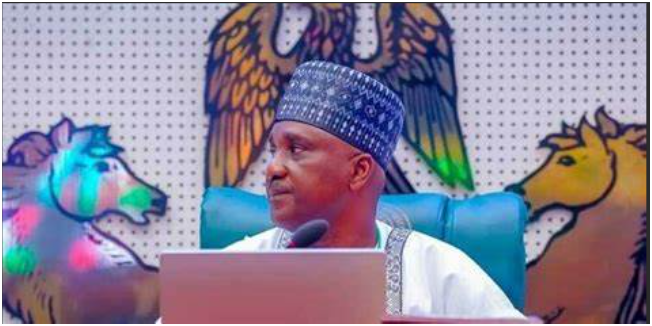ABUJA, NG — July 9, 2025 | IDNN Legislative Desk
The House of Representatives has proposed a landmark constitutional amendment that would expand the total number of National Assembly seats from 469 to 552, creating 83 additional reserved seats for women and persons with disabilities (PWDs) in a bold move to drive inclusive representation.
Speaker of the House, Tajudeen Abbas, made the announcement Tuesday at the opening of the 2025 National Assembly Open Week and unveiling of the 10th House Midterm Legislative Scorecard in Abuja.
“This proposal will correct historical imbalances and ensure that women and persons with disabilities are no longer mere spectators in governance,” Abbas said.
📊 Breakdown of the Reserved Quotas
Under the proposal:
-
55 new seats will be reserved for women in the House of Representatives
-
28 new seats will be created in the Senate
-
Total NASS membership would grow from 469 to 552 lawmakers
In addition:
-
5% of existing seats will be designated for persons with disabilities, to be nominated by accredited disability advocacy organizations
All representatives elected under the reserved quota system will have full legislative rights, including participation in debates, voting, and committee assignments.

👩🏽⚖️ “From Tokenism to Full Inclusion”
Speaker Abbas emphasized that the proposal would be embedded directly in the Nigerian Constitution to guarantee sustainability.
“These seats will be filled through direct elections, conducted on separate ballots, and distributed across states to ensure regional balance,” he noted.
“This is not about charity—it’s about equity, participation, and correcting decades of political exclusion.”
Abbas also proposed staggered terms for the reserved-seat legislators to promote mentorship and continuity.
📉 Nigeria’s Poor Female Representation
The speaker provided a historical timeline showing how women’s representation has remained stagnant for decades:
-
1960 – Less than 1%
-
1990 – 2%
-
1999 – 3.9% in House, 4% in Senate
-
2025 – Still under 5% overall
He referenced global success stories like Rwanda and Senegal, where reserved-seat policies boosted female representation to over 30% in one election cycle.
“It’s time to move beyond symbolic roles. We are reshaping the architecture of Nigerian democracy,” Abbas said.
🧠 Why This Matters
Advocates say the reform could:
-
Improve policy outcomes on gender, education, and healthcare
-
Increase youth and civil society engagement
-
Promote leadership pipelines for underrepresented groups
If passed, the proposal would be Nigeria’s most significant electoral reform in over two decades.
This is IDNN. Independent. Digital. Uncompromising.
